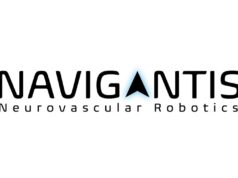The ALS Association has announced the awarding of five new grants to investigate the causes and treatment of amyotrophic lateral sclerosis (ALS). The ALS Association identified the focus of each of these grants as areas with high potential for progress.
These grants are part of the TREAT ALS (Translational research advancing therapies for ALS) portfolio, which is a research endeavour enabling important global research to progress from the laboratory to the bedside. The focus of the programme is to support novel ideas, build tools, partner with academia and industry to identify new potential therapies and support the infrastructure for clinical trials with the goal to find meaningful treatments for ALS and a cure.
The funded grants are:
Palmitoylation of SOD1 and the pathogenesis of ALS
Principal Investigators: Raymond Roos, M.D. and William Green, M.D., University of Chicago, Chicago, USA.
Funded by The ALS Association, Greater Chicago Chapter, through the State of Illinois
The investigators will determine whether a specific chemical change in the mutant SOD1 protein contributes to the misfolding of the protein that occurs in the disease. Mutations in SOD1 are one cause of familial ALS. Mutant protein misfolds, which is thought to contribute to the degeneration of motor neurons containing it. The investigators have discovered that mutant SOD1 undergoes a chemical change, called palmitoylation, more often than normal SOD1. They will examine the effect of this change on misfolding to determine if and how it contributes to the disease process and whether altering palmitoylation can be therapeutic.
Corticospinal motor neuron developmental control genes as candidates for human ALS susceptibility
Principal Investigators: Jeffrey Macklis, Ph.D. (Harvard University, Cambridge, USA.), and Ammar Al Chalabi, M.D. (Kings College, London, UK)
Additional funds have been provided toward this study by MNDA UK
The development of motor neurons is under the control of a group of genes, each of which can exist in a variety of forms, or alleles. The specific set of alleles a person has may influence not only the development of their motor neurons, but also the susceptibility of those neurons to disease later in life, including ALS. The investigators will determine whether the alleles for these genes differ between people with ALS and those without it. Understanding whether and how developmental genes influence disease susceptibility will allow identification of many new targets for therapy.
Cognitive change and ALS staging: The relationship between cognitive and motor system involvement in ALS
Principal Investigators: Sharon Abrahams, Ph.D. (University of Edinburgh, Scotland); Ammar Al Chalabi, M.D. (Kings College, London, UK), and Orla Hardiman, M.D. (Trinity College, Dublin, Ireland)
People with ALS may experience cognitive changes as part of their disease, and these changes may influence their physical abilities. In this study, researchers will develop a better understanding of those cognitive changes and their relationship to physical functioning during the disease course. The aim is to both better understand this interaction and to develop a new disease staging system incorporating both cognitive and physical changes that can be used in clinical trials to track response to therapy.
AAV therapeutic agents for ALS
Principal Investigator: Zuoshang Xu, M.D. Ph.D., University of Massachusetts, USA.
In this study, researchers will further develop a gene therapy delivery vehicle, or vector, using a new type of adeno-associated virus (AAV). AAV has been shown to be a versatile vector for reaching neurons in the central nervous system with a good safety record. Here, the scientists will develop the ability to pack a so-called “interfering RNA” into the vector and test its therapeutic ability in rats carrying a disease-causing SOD1 mutation. Success in this study will increase the rationale for development of gene therapy in people with ALS.
Familial ALS exome capture and genomic sequencing collaboration
Principal Investigators: Benjamin Neale, Ph.D. (Massachusetts General Hospital, Boston, USA) and Christopher Shaw, M.D. (Kings College London, UK)
Several large-scale studies have produced volumes of data on gene variants associated with an increased risk for ALS. In this project, researchers will combine the data from those studies to better determine which of these gene variants is most strongly associated with disease. A key aspect of the research will be to stringently remove from consideration those variants that, despite some hint of association, are unlikely to be actually involved in ALS, thus streamlining the search for true risk genes. This project represents a major collaboration among multiple research groups, and its results will likely set the stage for developing much deeper insights into the genetics of ALS.












